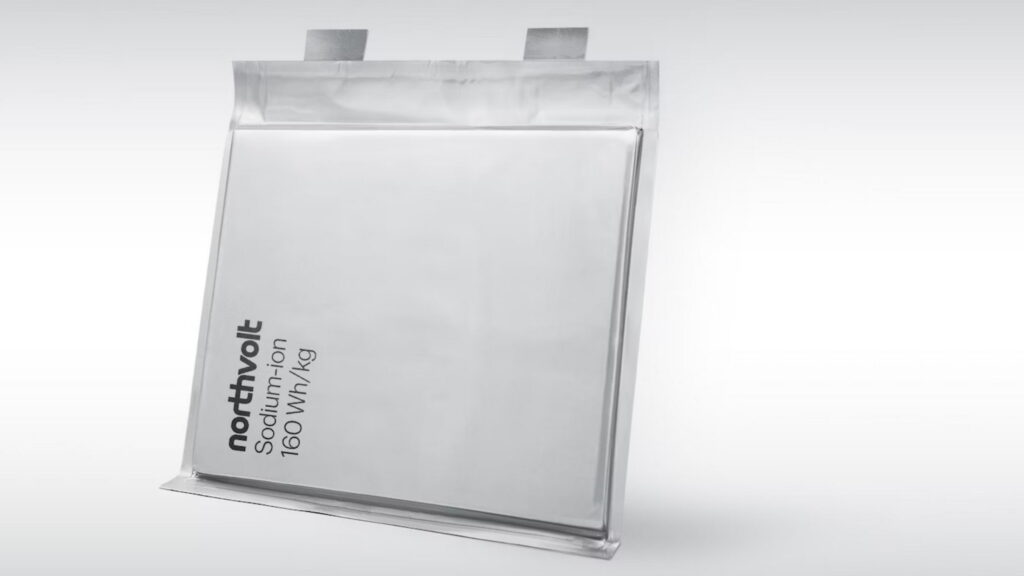Sodium-ion batteries aren’t quite ready for EVs yet, but soon will be now that Northvolt says it can produce cheap, safe versions for storing renewable energy

Although electric vehicles emit many fewer pollutants while driving than internal combustion vehicles, mining the raw materials that make up their batteries can still be a carbon-intensive process. Fortunately, Sweden’s Northvolt says it has developed a new cell chemistry that relies less on exotic materials.
Unfortunately, the company says its sodium-ion battery cells aren’t ready for cars yet, but it’s working on it. In the meantime, it suggests that, with a density of 160 watt-hours per kilogram, they’re ideal for storing renewable energy.
For comparison, that energy density is a little better than lithium iron phosphate (LFP) cells from CATL and BYD, but falls short of what lithium-ion batteries can deliver. As an example, Tesla’s 4680 cell reportedly has an energy density of up to 296 watt-hours per kilogram.
advertisement scroll to continue
Read: Stellantis Bets On CATL’s Low Cost EV Batteries With European Gigafactory Partnership

However, the really impressive part is that the batteries are made with abundant materials, like iron and sodium. It’s also more cost-effective and safe than the nickel, manganese and cobalt (NMC) or iron phosphate (LFP) chemistries that are already out there, according to Northvolt.
“The world has put high hopes on sodium-ion, and I’m very pleased to say that we’ve developed a technology that will enable its widespread deployment to accelerate the energy transition,” said Peter Carlsson, Northvolt CEO. “It’s an important milestone for Northvolt’s market proposition, but battery technology like this is also crucial to reach global sustainability goals, by making electrification more cost-efficient, sustainable and accessible worldwide.”
Developed with its research partner Altris, the Swedish company says that its sodium-ion battery depends on a material called Prussian White, that it plans to be the first to industrialize for this purpose. The result is a cell that’s cheap to manufacture, and safe at high temperatures, making it appealing for warmer parts of the world. Northvolt says that it is working to develop a higher-density cell in the future that will be ideal for automotive applications.
“Our sodium-ion technology delivers the performance required to enable energy storage with longer duration than alternative battery chemistries, at a lower cost, thereby opening new pathways to deploying renewable power generation,” said Carlsson. “The potential of sodium-ion in this market alone will make a tremendous impact in the drive towards global electrification.”

